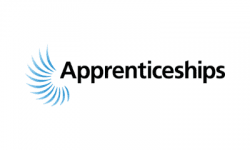As an engineering apprentice you will choose which discipline to cover on application.
Discipline Areas
- Electrical Maintenance Engineering
- Mechanical Maintenance Engineering
- Electro-Mechanical Maintenance Engineering (Multi-skilled)
- Control and Instrumentation Engineering
The apprenticeship will provide training in your core role developing your skills, knowledge and behaviours in line with the industry standard for the apprenticeship.
This engineering apprenticeship will initially cover broad based training and grounding in Electrical and or Mechanical skills at Waterside Training in St Helens with years 2, 3 and 4 working in your employing company alongside qualified technicians in either an Electrical, Mechanical or Control and Instrumentation discipline whilst continuing to attend college day release up to Level 4 HNC.
Engineers work as part of a team to provide engineering support to multi-million pound plant operations, to maintain and repair equipment to improve efficiency and product quality along with carrying out fault finding diagnosis and problem solving.
The engineering apprenticeship will include activities such as;
- machine and equipment maintenance, including preventative and planned maintenance tasks of electrical and mechanical activities
- fault finding and diagnostics
- using preventative maintenance systems
- restoring components undertaking repair
- replacement and servicing equipment
- be involved in either Electrical and/or Mechanical activities depending on your core area assisting the engineering teams in various job roles covering:
- maintenance on electrical equipment, such as motors, control units, PLC’s, sensors, instrumentation, distribution systems and switchgear
- and/or assisting with preventative maintenance on mechanical equipment, such as motors, gearboxes, pumps, bearings, chain drives to conveyor belts and systems dealing with both pneumatics and hydraulic drive systems.
Apprentices will complete a programme of theoretical and practical learning. On completion of the broad-based training individuals will work with experienced engineers on plant tackling “real life” activities specifically studying in one core discipline being either Electrical Engineering or Mechanical Engineering or Control and Instrumentation.
Typical working hours will be between 37.5 to 40 hours per week and once onsite a willingness to work shift work on completion of the apprenticeship is essential as most companies will operate a shift pattern of 6-2, 2-10, 10-6 or a 12 hour continental shift pattern.
During year 1 you will build, assemble, install and commission a live electrical panel with emergency controls, stop/start sequence and techniques like PLC’s that drive a motor control speed unit to activate a working panel and or conveyor system along with learning about measuring, marking out, bench fitting techniques along with lathe, milling and mechanical maintenance type activities. You will also cover some elements of Lean Manufacturing and Business Improvement Techniques.
You must be able to travel to both Waterside based at St Helens and your employing company site base to attend both off the job and on the job training is essential.
The ideal candidate should have a genuine desire to be a maintenance craft person with the level of drive and commitment necessary to embrace the learning opportunity with a mechanical and/or electrical aptitude, an analytical ability and good problem solving skills with a methodical approach to work.
Waterside will assign you a mentor/assessor to guide you through the apprenticeship and carry out six weekly reviews along with guiding you through your standards through portfolio building, behavioural logs, technical discussions, observations to check competency levels prior to embarking on the End Point Assessment.
On completion of the apprenticeship, you can go on to study higher education such as HND or Degree as well as registering for Chartership of the Industry such as the IMechE and IET







